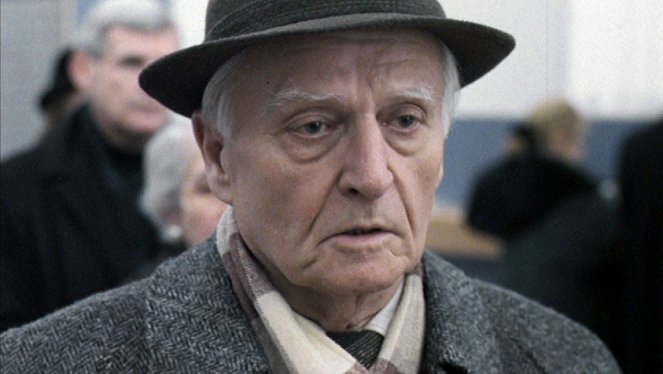Directed by:
Michael HanekeScreenplay:
Michael HanekeCinematography:
Christian BergerCast:
Lukas Miko, Georg Friedrich, Klaus Händl, Udo Samel, Claudia Martini, Anne Bennent, Branko Samarovski, Axel Sichrovsky, Dorothée Hartinger, Otto Grünmandl (more)VOD (1)
Plots(1)
In this film, clips of TV news segments on warfare in the former Yugoslavia alternate between stories of urban disconnection. And while continuing to approach filmmaking from an anti-psychological perspective, filmmaker Michael Haneke assembles a unified work from snippets of narrative, such as Inge (Anne Bennent) and Paul Brunner (Udo Samel) struggling with a newly adopted daughter, and a homeless Romanian boy wandering the streets of Vienna. (Kino Video)
(more)Reviews (2)
71 Fragments of a Chronology of a Chance and The Seventh Continent are the exact opposite of why I, as a child, became
a movie enthusiast. No poetics of imagery, gradation of story or emotion. No colors or tones. Only mechanical – though
intellectually brilliant – philosophizing over the filth and unpredictability of the world, deliberately heartlessly composed
of static, sometimes painfully long shots. The heartless editing is deliberate, because Haneke is a rebel and does not
want to manipulate the viewer with what makes movies enjoyable (editing) or emotionally impressive (music).
()
Haneke's return to the radical approach of his debut. An incoherently chopped stream of fragments, long, seemingly useless details of mundaneness, and documentary inserts in the form of news from massacres and wars. Another player appears in Haneke's cold and withdrawn world – coincidence. The director's fragmentary vision stands beside the analysis of the disintegration of modern values, and it is a vision that presents disjointed scenes to the viewer. Is there any motivation or interconnectedness between them? Does madness and decay spring from namable sources? Haneke's answer is chilling with its non-participation and absurdity. His small world is connected to the world of great history by a moment of moral crisis... continuous vessels in which blood, anger and hopelessness spill over. Although the cruelty of great events in history is not surprising, the small ones always get to us. At the same time, as Haneke shows, it is the same flesh, the same evil. The same creature. Mensch.
()

